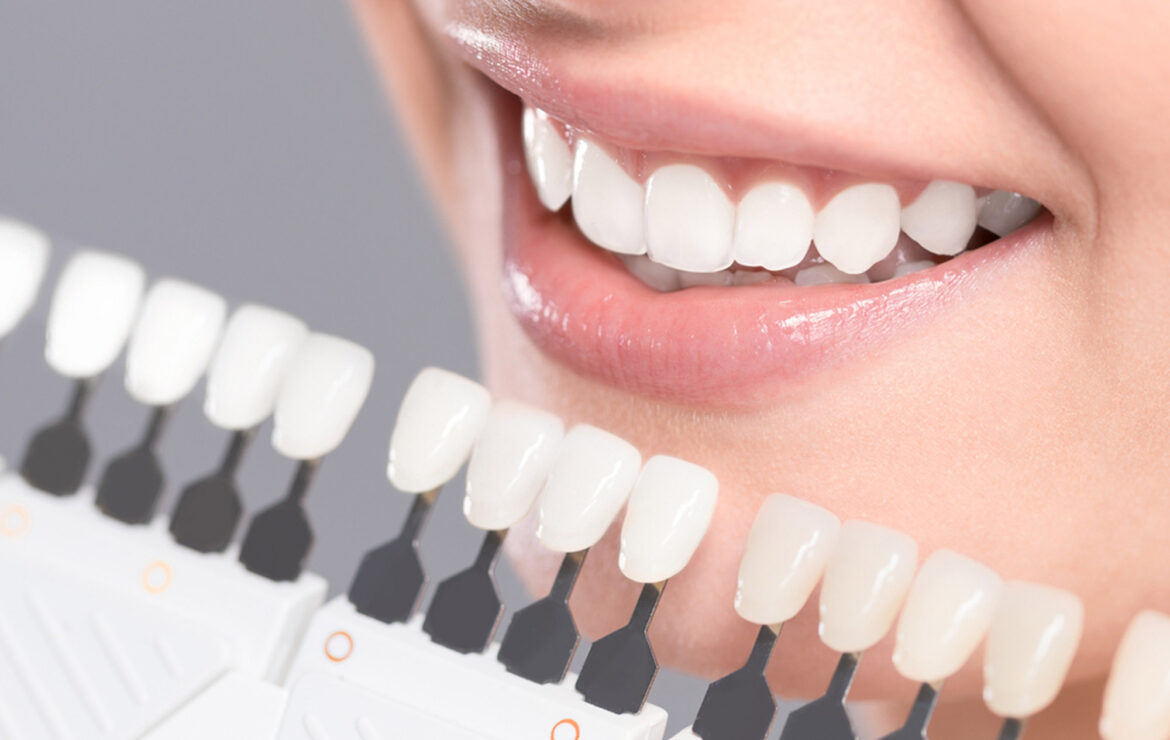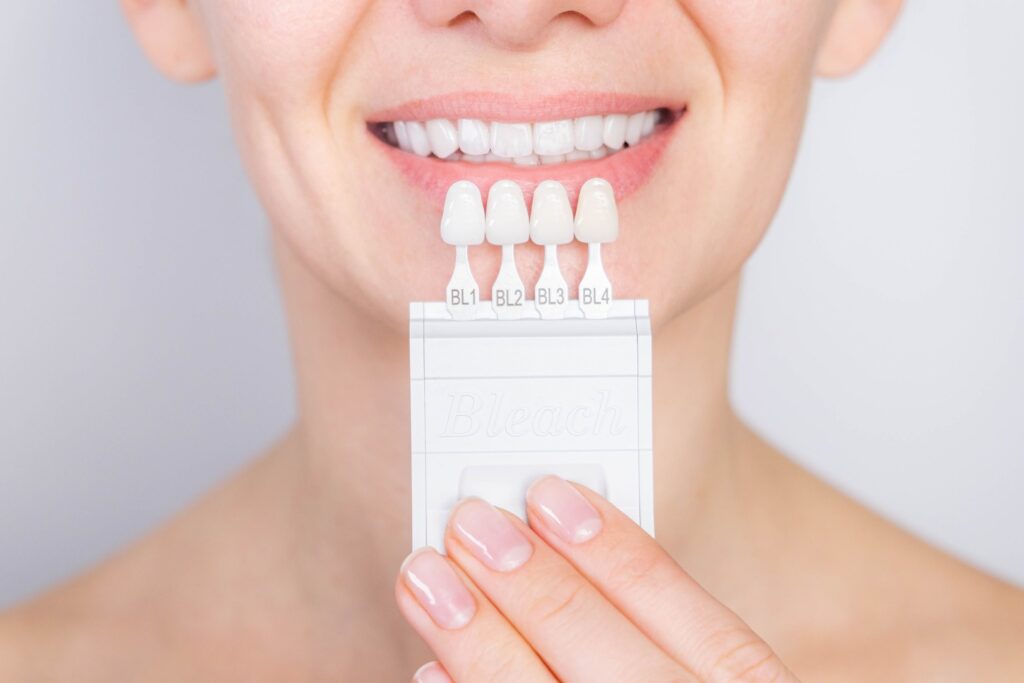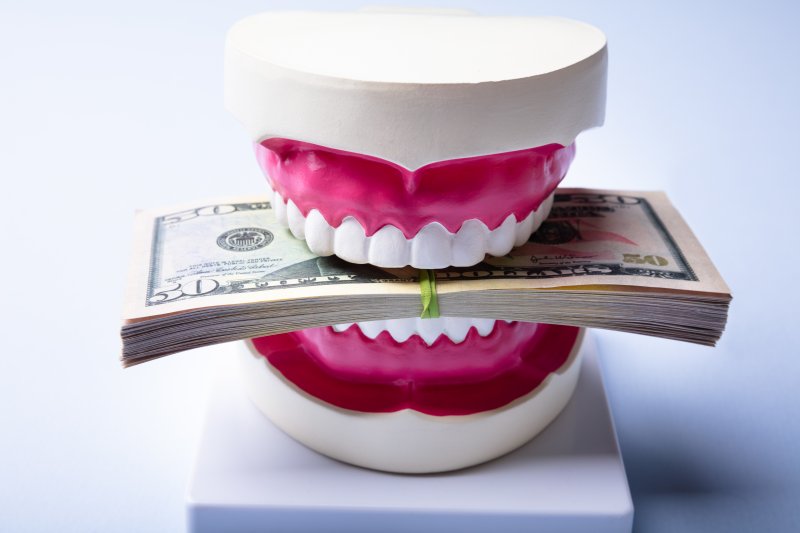If you want a dazzling new smile but are worried about discomfort, you might wonder if porcelain veneers are painful. Porcelain veneers are an incredibly popular option for dealing with chipped, stained, or misaligned teeth. It’s understandable to have some apprehension about the procedure. Let’s bust some myths and put your mind at ease.
Key Points: Porcelain Veneers and Pain
- Veneers Defined: Thin, custom porcelain shells that cover the front of teeth for cosmetic benefits.
- Pain is Minimal: Procedure is minimally invasive with local anesthesia used.
- Temporary Discomfort: Some experience mild, short-term sensitivity afterward.
- Mythbusting:
- Veneers are NOT extremely painful.
- Sensitivity is NOT always permanent.
- Tooth structure is NOT fully removed.
- Factors Affecting Discomfort:
-
- Dentist’s experience
- Individual pain tolerance
- Amount of tooth preparation needed
-
- Tips to Minimize Discomfort:
- Talk to your dentist
- Over-the-counter pain relievers
- Soft food diet initially
- Good oral hygiene
Porcelain Veneers: Everything You Need to Know Before Getting Them
Let’s quickly define our terms. Porcelain veneers are wafer-thin, customized shells of porcelain designed to cover the front of your teeth. They mask imperfections and create a beautiful, uniform smile.
The Porcelain Veneers Procedure: Does It Hurt?
The journey to getting porcelain veneers typically involves several visits to the dentist. The initial assessment might include X-rays and impressions to understand the current state of your teeth. A crucial part of the preparation involves trimming the enamel to accommodate the veneers—a process done under local anesthesia to ensure a pain-free experience. This meticulous preparation is key to achieving a perfect fit and a natural look. The good news is that the porcelain veneer procedure is generally considered minimally invasive and shouldn’t be intensely painful. Here’s why:
- Anesthesia: Your dentist will use a local anesthetic to ensure your comfort during the preparation process. You might feel a slight pinch from the injection, but the area will quickly become numb.
- Tooth Preparation: Your dentist will remove a small amount of enamel to make room for the veneers. While this might sound scary, most patients find it causes minimal discomfort, more like a vibration or mild pressure.
- Placement: The actual process of bonding the veneers to your teeth is painless.
Porcelain Veneers: Understanding and Managing Discomfort
Concerns about pain are common among prospective porcelain veneer patients. It’s important to highlight that modern dentistry practices have made significant strides in minimizing discomfort. The application of local anesthesia renders the procedure painless. Post-operative soreness, if it occurs, is typically mild and manageable with over-the-counter pain relief. Some patients experience temporary sensitivity or soreness after the procedure. This is typically mild and can be managed with over-the-counter pain medication. Any discomfort should fade within a few days.
Busting Common Pain Myths
Let’s debunk some widespread misconceptions about porcelain veneers and pain:
- Myth 1: Getting veneers is extremely painful.
- Reality: Though some discomfort is possible, most people find the procedure tolerable due to anesthetics and the minimally invasive nature of the process.
- Myth 2: Veneers always cause lasting sensitivity.
- Reality: Short-term sensitivity is possible, but it should go away. Persistent issues might indicate another problem your dentist should address.
- Myth 3: The entire tooth structure is removed for veneers.
- Reality: Dentists only remove a thin layer of enamel, preserving the majority of your natural tooth.
Factors That Can Influence Discomfort Levels
- Your Dentist’s Skill: An experienced cosmetic dentist performs the procedure expertly, minimizing any discomfort.
- Your Pain Tolerance: Everyone experiences pain differently. Some have higher pain tolerances than others.
- Extent of Preparation: If you need significant tooth shaping for veneer fit, you might experience slightly more sensitivity.
Caring for Your New Smile: Post-Veneer Recovery and Maintenance
The recovery process is surprisingly straightforward, with many reporting minimal to no pain post-procedure. Patients might experience temporary sensitivity or increased salivation, but these symptoms usually subside quickly. Emphasizing oral hygiene post-procedure is crucial for the longevity and health of the veneers, preventing discomfort in the long run.
Tips for Minimizing Discomfort
- Talk to Your Dentist: Openly communicate your concerns and ask about any pain management options.
- Over-the-counter relief: Take ibuprofen or acetaminophen before and after the procedure as directed.
- Soft Diet: Stick to soft foods for the first few days after getting veneers.
- Good Oral Hygiene: Brush gently around the veneers to avoid gum inflammation.
Long-Term Care and Maintenance
Maintaining porcelain veneers involves routine dental hygiene practices, including regular brushing, flossing, and dental check-ups. Avoiding hard foods and using non-abrasive toothpaste can help extend the life of your veneers. Regular dental visits are essential for early detection of any issues, ensuring your veneers remain in pristine condition.
The Value of Porcelain Veneers: A Long-Term Smile Investment
Porcelain veneers are a long-term investment in your smile. While the upfront cost might be higher than other cosmetic procedures, the durability, aesthetics, and minimal maintenance requirements make them a cost-effective solution over time. Discussing financing options with your dental office can make this investment more manageable.
Personalized Consultation: Tailoring the Veneer Process to You
While porcelain veneers might cause some temporary discomfort, for most patients, the process isn’t a painful one. The results – a stunning smile – are usually well worth any minor inconveniences during the procedure. If you’re considering veneers, find a reputable cosmetic dentist you trust. With their expertise, you can enjoy a smile transformation with minimal pain.
Conclusion
Porcelain veneers offer a transformative potential for those looking to enhance their smile. Understanding the procedure, managing expectations regarding discomfort, and following through with proper aftercare can make the process rewarding. By debunking myths about pain and highlighting the advancements in cosmetic dentistry, we hope to provide clarity and confidence to those considering porcelain veneers as a viable option for smile enhancement.
Give Your Smile a Confidence Boost with Porcelain Veneers Surrey can help you achieve a picture-perfect smile with porcelain veneers. Custom-crafted for each tooth, they provide a natural look while enhancing both aesthetics and functionality.
Dental Clinic Surrey prioritizes patient comfort with minimal invasiveness, often completing the procedure in just two visits. They’ll also equip you with detailed aftercare instructions to ensure long-lasting results. Plus, with financing options available, you can create the smile you’ve always dreamed of without breaking the bank.
FAQs on Porcelain Veneers and Pain Management
Q1: Are porcelain veneers painful?
A1: No, the application involves local anesthesia for a pain-free experience. Mild discomfort or sensitivity post-procedure is common but manageable with pain relief medications.
Q2: What’s involved in the veneer procedure?
A2: It includes an initial consultation, enamel trimming under anesthesia, impressions for custom veneers, and finally bonding them to your teeth with minimal discomfort.
Q3:Recovery period post-veneers?
A3: Recovery is quick, with most experiencing minimal discomfort that subsides within days. Temporary sensitivity to temperature changes may occur but is short-lived.
Q4: How to care for porcelain veneers?
Q4: Maintain routine oral hygiene with non-abrasive toothpaste and regular dental check-ups to extend veneer life.
Q5: Potential side effects of getting veneers?
A5: Temporary tooth sensitivity and gum soreness are common. Rare issues like misalignment or looseness require dental attention.
Q6: How long do porcelain veneers last?
A6: With proper care, they can last 10 to 15 years or more. Regular dental visits are crucial for their upkeep.









